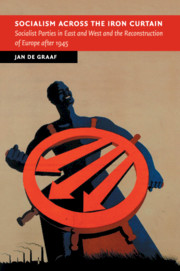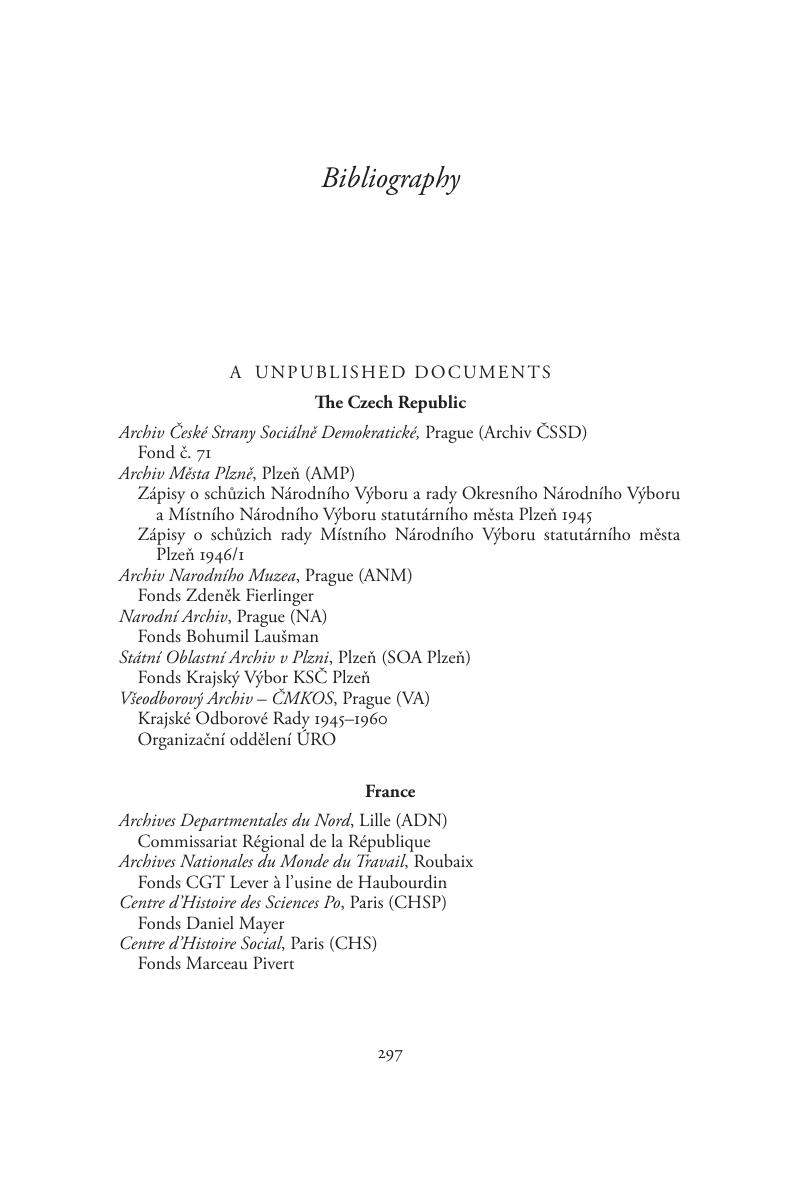 Socialism across the Iron Curtain
Socialism across the Iron Curtain Book contents
- Socialism across the Iron Curtain
- New Studies in European History
- Socialism across the Iron Curtain
- Copyright page
- Contents
- Acknowledgements
- Abbreviations
- Introduction
- Chapter 1 The National Road to Socialism
- Chapter 2 Bread, Butter, and Egalitarianism
- Chapter 3 Discipline, Sacrifice, and Production
- Chapter 4 The Moral of the Story
- Chapter 5 The Lessons of the Past
- Chapter 6 Elections, Parliaments, and Constitutions
- Chapter 7 Democracy from Below
- Chapter 8 The International Road to Socialism
- Conclusion
- Bibliography
- Index
- References
Bibliography
Published online by Cambridge University Press: 04 January 2019
- Socialism across the Iron Curtain
- New Studies in European History
- Socialism across the Iron Curtain
- Copyright page
- Contents
- Acknowledgements
- Abbreviations
- Introduction
- Chapter 1 The National Road to Socialism
- Chapter 2 Bread, Butter, and Egalitarianism
- Chapter 3 Discipline, Sacrifice, and Production
- Chapter 4 The Moral of the Story
- Chapter 5 The Lessons of the Past
- Chapter 6 Elections, Parliaments, and Constitutions
- Chapter 7 Democracy from Below
- Chapter 8 The International Road to Socialism
- Conclusion
- Bibliography
- Index
- References
Summary

- Type
- Chapter
- Information
- Socialism across the Iron CurtainSocialist Parties in East and West and the Reconstruction of Europe after 1945, pp. 297 - 312Publisher: Cambridge University PressPrint publication year: 2019
